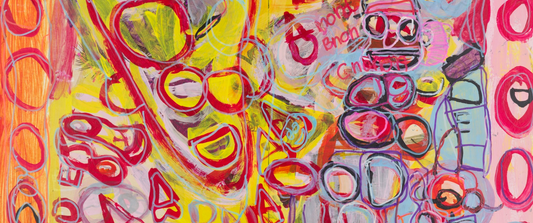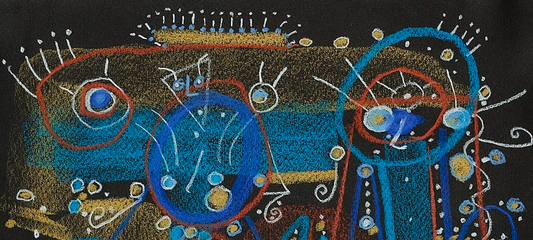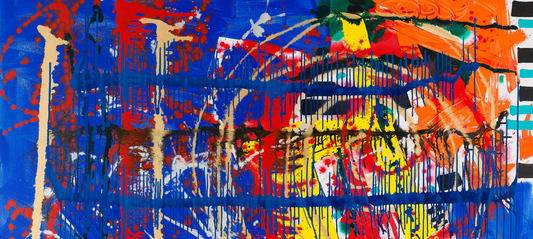First published: Winter 1998
The story of Alexander Lobanov reflects a threefold oppression of illness, imprisonment and political censorship. Born in 1924 in Maloga, a small town in the province of Iaroslavl in the USSR, Lobanov lost his speech and his hearing at the age of six as the result of meningitis. Between 1939 and 1941 Maloga was evacuated so that the whole region could be flooded to create a reservoir. Lobanov’s family left their house around 1939 to live in a small flat in Iaroslavl. At that time Lobanov attended a special school in Zagorsk, but it was closed in 1941 when the USSR entered the Second World War. His father died in 1945 and in 1947 he was admitted to Iaroslavl’s regional psychiatric hospital. In 1950 he was transferred to the hospital in Afonino, in the countryside not far from Iaroslavl, where he remained until his death in April 2003.

It was in Afonino that, around his mid-thirties, Lobanov began timidly to copy any images he came across. He went on to produce collages and eventually to create works of increasing originality. It took only a few years for his art to take on a wider dimension. He was still not recognised as an artist but his work earned him greater leniency in the psychiatric regime.




